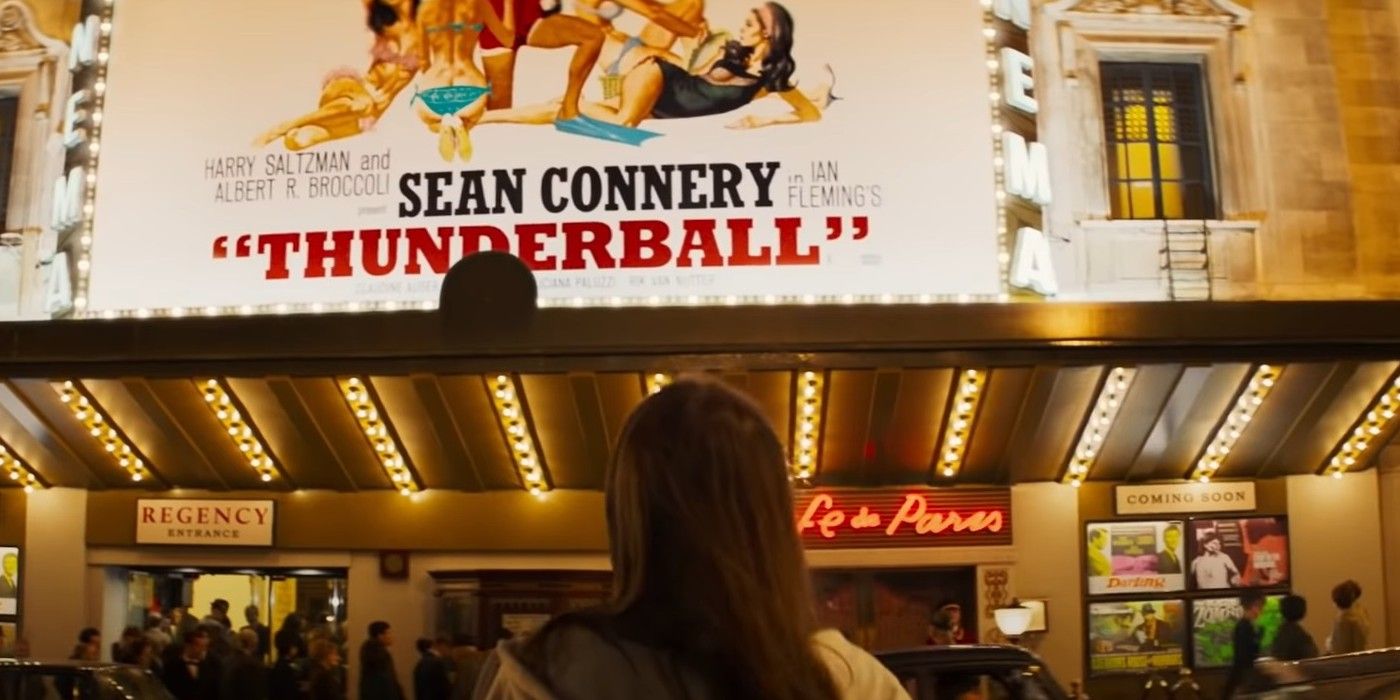Edger Wright's Last Night in Soho features several flashbacks to the 1960s, but while it doesn’t explicitly state the year in which they're set, it's easy to guess. Wright’s 2021 psychological horror Last Night In Soho follows modern-day London fashion student Eloise (Thomasin McKenzie) as she experiences a strange sixth sense that launches her back into the 1960s in the body of nightclub singer Sandie (The Queen’s Gambit’s Anya Taylor-Joy). While Eloise first enjoys the glamorous life and romance of Sandie in the ‘60s, she quickly uncovers the horrifying events of the past and their consequences in the present.
Last Night in Soho is no ordinary time travel movie. It pays homage to the nostalgic culture of the 1960s with Eloise’s obsession with the era-specific hairstyles, fashion choices, neon signs and hauntingly beautiful music. At the same time, Last Night in Soho's glorification of the past is simply surface, with Eloise’s exalting vision of the ‘60s being crushed by grueling and inexcusable events being swept under the rug and written off for her idol. Wright’s intentionally hypnotizing glamour of the era doesn’t stop at the film's theme and aesthetic, it’s also apparent in casting iconic ‘60s actors like the late Bond actress Diana Rigg or Swinging London figure Terence Stamp.
The glamour of the 1960s is important to Last Night in Soho’s motives and illusionary horror, so it’s strange that Wright’s movie never explicitly mentions the specific year of the flashbacks. Last Night in Soho is clearly grounded in the London youth cultural move, so this narrows down the timeline to the mid-to-late ‘60s. Once this is established, Last Night in Soho’s flashbacks year can be pinned down most clearly by the enormous cinema marquee promoting the premiere of the Sean Connery James Bond film Thunderball. The spy movie was released in the UK on December 29, 1965, placing the events of Last Night in Soho’s flashbacks in late 1965 to early 1966.
The Edgar Wright movie's 1960s ghost story also nostalgically places viewers in the timeline through soothing pop hits of the 1965 era. The song that underscores his nostalgic look most clearly is the international hit “Downtown” by Petula Clark, released in 1964. Last Night in Soho’s trailer featured Anya Taylor-Joy hauntingly singing “Downtown” at the nightclub, and Wright also includes plenty of other British mid-’60s needle drops to more accurately place the timeline. This includes hit such as 1964’s “A World Without Love” or the late-1962 record “Got My Mind Set On You.” Interestingly, Wright had originally intended for Last Night in Soho’s flashbacks of Anya Taylor-Joy's character to feature no dialogue, only being told through the music of the era to underscore the past’s dreamlike aesthetic (via MovieMaker). This early vision goes to show how important the music selection is in identifying the timeline.
Wright’s ode to mid-’60s London is filled with pop culture stapes from the era, effectively transporting the audience to the era alongside Thomasin McKenzie’s character. While the 1965-66 setting is entrancing with Last Night in Soho’s set and costume designs, Wright’s film reminds viewers that romancing past eras can come with consequences. From movie posters of Thunderball, Dr. Terror’s House of Horrors and The Plague of Zombies to specific pop hits, Edgar Wright still does an incredible job crafting Last Night in Soho’s genuine 1965-66 flashbacks.


